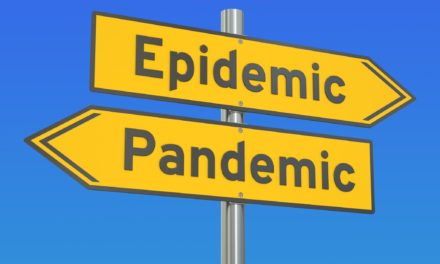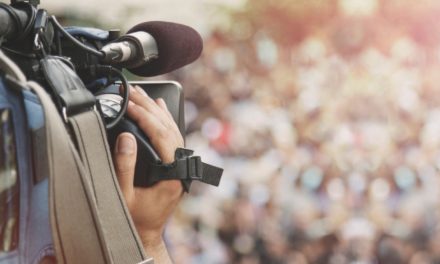Writing to-do lists, standard-of-care guidelines, orders to take care, stay home, get tested, don’t go to the ER, advice on a fair allocation of scarce resources, rationing health care, protecting clinicians, and mitigating harm is what thousands of people are doing every day. We’re writing as fast as we can to stay ahead of the body count and to flatten the curve. We fear the COVID-19 nightmare like nothing else in our history. The technical term for this mountain of paper and digital data is “Crisis Standards of Care.” Today the crisis is defining the turning point of a disease we know little about. When, how, and why it turns in our favor is the essence of Crisis Standards of Care. They are guides, protocols and mandates that will shape recovery or death. It’s a crisis of both action and delay.
We must address ethical norms in times of crisis. We face near-term death-by-disease at a scale never before seen. This essay is not about what we do, how we do it, or even who does it—it is about the ethics of writing crisis standards of care. Should we concern ourselves with the ethics of the writing, or is it sufficient to hope those writing to and about us are competent? My sense is that competence is not enough. Ethics matters now more than ever.
Well-established resources in place can guide how and what we write:
- The Institute of Medicine,[1] the National Academy of Medicine,[2] and the National Academies of Science, Engineering, and Medicine[3] have strong voices and resources.[4]
- While the COVID-19 is a novel virus, it is just one of a family of viruses that threaten large swaths of the planet. Most have struck ethical nerves and twisted ethical muscles across the planet. The World Health Organization[5] has developed guidelines and training materials on ethical issues arising in different epidemics—pandemic influenza, Ebola, and Zika.[6]
- The Hastings Center[7] assembled ethics resources for responding to our novel Coronavirus (COVID-19) to support leadership and practice during the coronavirus public health emergency.[8]
- Several media and health organizations are noting “thorny medical ethics dilemmas,” directly related to COVID-19.[9]
- The ethical imperative of preparedness is a trending issue on the Internet.[10]
- A video from inside a COVID-19 hospital sparked legal and ethical questions.[11]
- Ethical standards for research during public health emergencies and distilling existing guidance to support COVID-19 R&D is a large topic in the US and across the world.[12]
It’s not whether the U.S. medical care system will crack, fail, or stall. That’s already happening nationwide. It’s not so much what we say; it’s what we leave out that matters. Do we apply the same ethical norms to writing to-do lists, as we do to make the incalculable number of life-or-death decisions being played out on our coastlines? It is important now because what’s happening on the East and West Coasts are practice runs toward center mass, border to border. As the shawl of death spreads out, some guidance will hinder, others dither, and a few stand out. For some crisis leaders, the body count will be less critical than the economic impact. Others will lower the body count at the expense of the economy. And sadly, a few will hide because they fear losing an election more than they fear either death or economic devastation.
What ethical imperatives apply when COVID-19 blankets the country? Here are the most obvious.
Our doctors must do no harm. Our lawyers must follow the rule of law. Our judges must stay on the bench. Our elected and appointed leaders must protect us, not their own private economic or political interests. Our families owe one another a level of fealty that is higher than ever because of this unparalleled public health emergency. We aren’t fighting a war; we’re fighting the denial of good science and fair sharing of public resources. Our government, at every level, must deal with us honestly and with heightened transparency. Our first responders must triage and care for people in the best interest of all of us—sick and well alike. We must help others at the same time we help ourselves. Investors must not use the pandemic to advantage only themselves; the stability of the market may depend on how prudent and thoughtful they act. It cannot be just business as usual. We cannot treat the pandemic as a political excuse to advance political ideologies. We cannot leverage goodwill, build bigger walls, belittle one another, or lie about harm just to get an unearned financial reward. And most of all, we must maintain a diligence, an awareness, and a sense of judgment not otherwise required because our very existence might be in question.
This crisis invokes basic ethical principles. It invokes the words we use to explain, warn, help, reassure, dissuade, and insist that science trumps politics. We should be writing about the difference between our moral obligations rather than political expedience. We should be cautious in our diction, our transparency, and our right to speak for, or to, defined audiences. Our leaders should not measure the effectiveness of their guidance by their media ratings. They should not think of us just as constituents. They should not ask for our votes, they should ask about our medical and economic needs. And they should listen to us, not their political campaign managers.
Shortage of essential resources in the fight against COVID-19 is the central most pressing ethical dilemma in the US today. There is a “. . . looming prospect of having to make extremely difficult decisions about which patients will, or won’t, have priority claim on our limited supply of ventilators. Physicians are facing very difficult choices under conditions of great uncertainty . . . the U.S. certainly has never been in situations where what is widely seen as optimal care simply may not be feasible. . . Physicians shouldn’t be left to make these decisions individually. They need guidance—from their institutions, their states, or national bodies. Having the institution make the call, in a systematic way, about who gets a ventilator and who doesn’t is far preferable from an ethics perspective, than leaving that to the patient’s caregiver. Having a designated committee or institutional officer make the call based on objective guidelines helps ensure that decisions are fair and takes the burden off physicians and other clinicians who are providing care for the individual patients affected.”[13]
It is our local, state and national health care systems and providers who must face both medical and ethical dilemmas. It is up to those who write about the cases, people, and solutions to inform everyone about two core needs. One, we must be prepared to obtain the most benefit from limited resources. Two, we must mitigate harm to individuals, the health care system, and society. We cannot let politics dictate the words in either.[14]
 I am an author and a part-time lawyer with a focus on ethics and professional discipline. I teach creative writing and ethics to law students at Arizona State University. Read my bio.
I am an author and a part-time lawyer with a focus on ethics and professional discipline. I teach creative writing and ethics to law students at Arizona State University. Read my bio.
If you have an important story you want told, you can commission me to write it for you. Learn how.
[3] https://www.nationalacademies.org/
[4] https://nam.edu/duty-to-plan-health-care-crisis-standards-of-care-and-novel-coronavirus-sars-cov-2/
[6] https://www.who.int/ethics/topics/outbreaks-emergencies/en/
[7] https://www.thehastingscenter.org/
[8] https://www.thehastingscenter.org/ethics-resources-on-the-coronavirus/
[9] https://www.healthleadersmedia.com/clinical-care/4-ethical-dilemmas-healthcare-organizations-during-covid-19-pandemic
[10] https://www.nuffieldbioethics.org/blog/covid-19-and-the-ethical-imperative-of-preparedness
[11] https://www.poynter.org/reporting-editing/2020/a-video-from-inside-a-hospital-shows-the-danger-of-covid-19-and-sparks-legal-and-ethical-questions-for-journalists/
[12] http://www.smer.se/news/links-to-ethics-resources-on-the-coronavirus-covid-19/
[13] https://www.medicaleconomics.com/news/covid-19-raises-ethical-dilemmas-many-physicians
[14] https://nam.edu/duty-to-plan-health-care-crisis-standards-of-care-and-novel-coronavirus-sars-cov-2/






 I am an author and a part-time lawyer with a focus on ethics and professional discipline. I teach creative writing and ethics to law students at Arizona State University.
I am an author and a part-time lawyer with a focus on ethics and professional discipline. I teach creative writing and ethics to law students at Arizona State University.  My latest novel is Hide & Be.
My latest novel is Hide & Be.  If you have an important story you want told, you can commission me to write it for you.
If you have an important story you want told, you can commission me to write it for you.